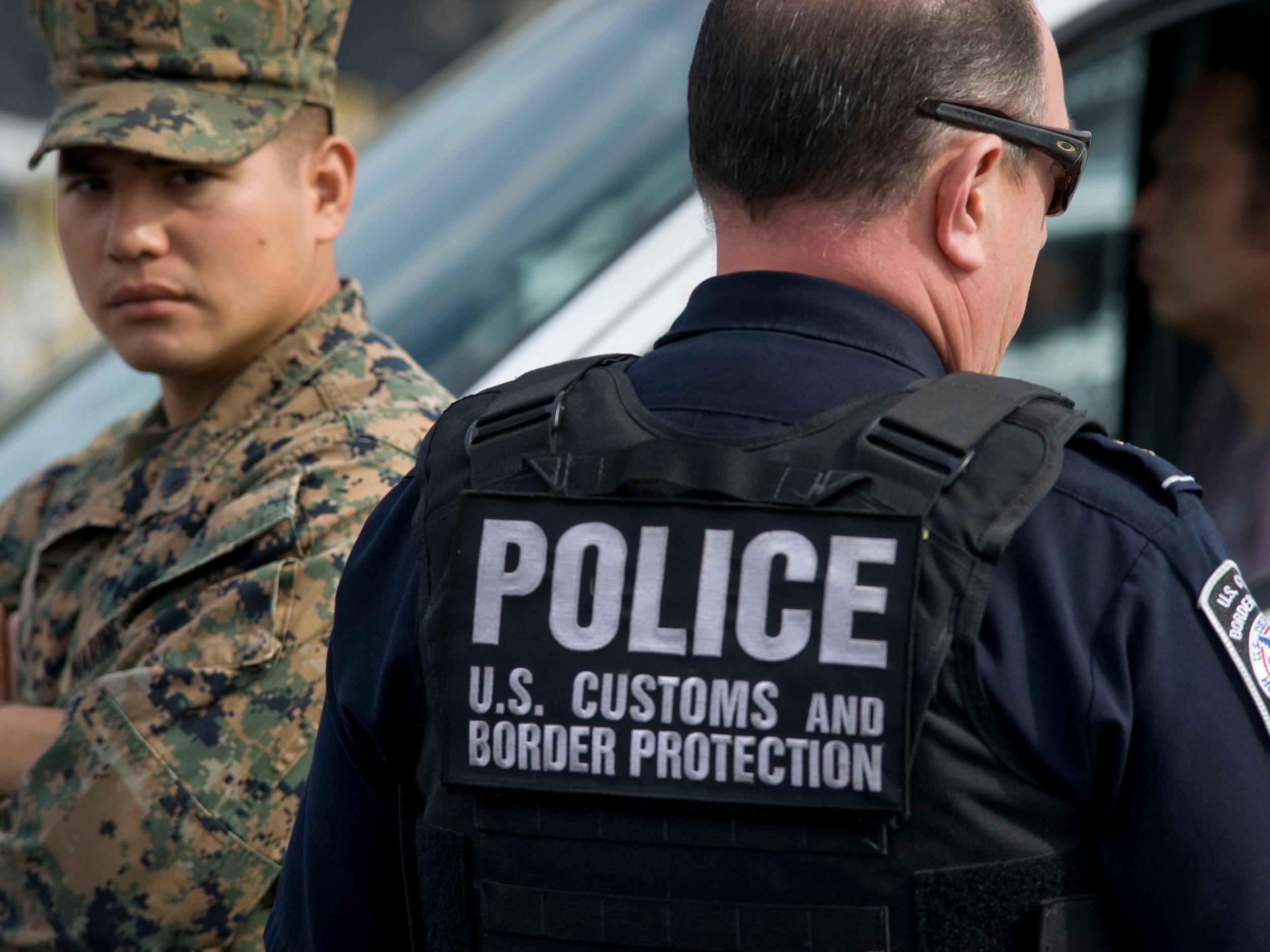Aghan interpreter who helped US troops ‘detained and threatened with deportation’ by border authorities
Advocacy group says sending former translator to Kabul could jeopardise his life

Your support helps us to tell the story
From reproductive rights to climate change to Big Tech, The Independent is on the ground when the story is developing. Whether it's investigating the financials of Elon Musk's pro-Trump PAC or producing our latest documentary, 'The A Word', which shines a light on the American women fighting for reproductive rights, we know how important it is to parse out the facts from the messaging.
At such a critical moment in US history, we need reporters on the ground. Your donation allows us to keep sending journalists to speak to both sides of the story.
The Independent is trusted by Americans across the entire political spectrum. And unlike many other quality news outlets, we choose not to lock Americans out of our reporting and analysis with paywalls. We believe quality journalism should be available to everyone, paid for by those who can afford it.
Your support makes all the difference.A former interpreter for US troops in Afghanistan was detained on Friday in Houston's international airport with his family and threatened with deportation to Kabul, a legal service advocacy group said, in a move that could jeopardise his life.
Mohasif Motawakil, 48, was detained by Customs and Border Protection. The agency allowed his wife and five children to be released at 10pm on Friday following pressure from lawmakers, said William Fitzgerald, a spokesperson for the Refugee and Immigrant Centre for Education and Legal Services (RAICES). An attorney for RAICES is representing Mr Motawakil.
Mr Motawakil and his family were granted special immigrant visas allotted for Afghans and Iraqis who supported US war efforts and are endangered because of their work, usually by the Taliban and other militants who consider them traitors and prize their capture.
Mr Motawakil served as an interpreter for US troops from 2012-2013, and later as a US contractor, Mr Fitzgerald said. The Special Immigrant Visa process takes years for many applicants, who must get letters of support from US officials to vouch for them and must demonstrate their lives have been imperilled.
Someone, potentially in the family, opened sealed medical records, prompting CBP to detain the family over concerns the records could have been "faked," Mr Fitzgerald told The Washington Post.
"Then [CBP] said they would be deported," he said, adding the family is "confused and traumatised" over the ordeal.
CBP, the State Department and the US Embassy in Kabul did not return a request for comment. The Houston Chronicle, which first covered the story, reported agency officials could not respond due to the government shutdown.
An attorney for RAICES has not been able to meet with Mr Motawakil, Mr Fitzgerald said.
"How unjust that this Afghan family, who helped our military, is in same airport as counsel - & yet have been walled off from one another," Representative Lloyd Doggett, D-Texas, said on Twitter.
Mr Doggett made calls to CBP, and Representatives Sheila Jackson Lee and Al Green, both Texas Democrats, went to the airport in support of Mr Motawakil, Mr Fitzgerald said.
Thousands of Afghans and their families have received those visas and resettled in the US since 2009, when the program began. There were 2,410 principal applicants who arrived with family members in 2018 - a 50 per cent decline compared to the previous year.
The number of visa approvals also fell by 60 per cent in 2018 compared to the previous year, according to State Department data.
No One Left Behind, an advocacy group for former interpreters, has said heightened vetting measures by the Trump administration was to blame, and waiting years for approval places them in "severely dangerous situations," said Kirt Lewis, the group's programmes director.
About 19,000 Afghan principal applicants are in some part of the vetting process for the visas, according to the State Department. They are waiting as a resurgent Taliban controls parts of Afghanistan, prompting former interpreters to go into hiding.
Mr Motawakil's family was taken in for the night by the Afghan Cultural Centre in Houston, though their fate in the United States, along with Mr Motawakil, has yet to be determined, Mr Fitzgerald said.
The Washington Post
Join our commenting forum
Join thought-provoking conversations, follow other Independent readers and see their replies
Comments